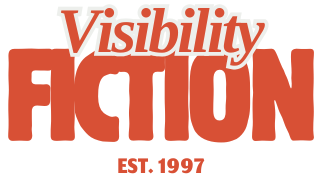Human progress has been one of the greatest narrations of civilisation, which is always seen from a very linear perspective rather than a nuanced and kind og paradoxical process. From the time we invented wheels to the web, from fire to fusion, we have come a long way and our journey is framed as a steady march forward rather than looking at both sides. We think that with every generation life is going to get much better, easier and more englihthing , but is the sense of progress universal and lasting? Or are we simply shifting from the perception, dependent on context and expectations.
Let’s imagine a thought experiment for a moment: a caveman named Gar suddenly landed from 50000 years ago into our modern world. His first reaction would be one of awe. He is seeing skyscrapers all around the city that touch the clouds, flying machines, food that appears at the click of a button, light without fire, everything that he has to work so hard for in this world. To him, the world is like a genie fulfilling all his whims within some time; Gar is experiencing years of human ingenuity compressed into a single overwhelming experience.
But after the wonder wears off, something very interesting happens; he cannot remain in awe forever. He will start to feel irritated and struggle with the modern world’s complexities. He would be confused by the traffic, annoyed by the noise, and frightened by the fast pace of life we have. The comfort of modern living would come with invisible burdens: overstimulation, alienation, pollution, surveillance, and endless rules.
From where he comes, life is governed by the rhythms of nature, whereas our life is glued to screens, clocks, and economic systems that many of us do not know much about. This raises a deep question about progress: is it inherently good or merely a trade-off?
Every advance solves old problems but introduces new ones. Antibiotics conquered deadly infections but gave rise to superbugs. Cars revolutionized travel but caused accidents, congestion, and climate change. The internet connected the world but also fueled disinformation, addiction, and division. We progress by eliminating suffering and swapping one set of challenges for another.
Through Gar’s journey, we see that progress is not a universal ascent; it’s a layered modern adaptation. What feels like progress to one generation might feel like regression to another. Much of what we see as “improvements” are improvements within a particular framework. But outside that framework—outside modern assumptions about speed, convenience, and productivity—those same “advancements” may appear disorienting or even absurd.
And yet, we don’t stop. We build more, consume more, and invent more. The myth of progress has become part of our identity. We measure civilizations by technological achievement, GDP, and life expectancy, often ignoring mental health, social cohesion, or ecological balance. We assume that newer means better and that innovation is always a virtue.
But progress without reflection is a treadmill. It moves forward but never pauses to ask: What exactly are we running towards?
We have rarely stopped to see what progress looks like. It’s not just the technological or physical progress that we should look at, but rather how well we have learned to manage the consequences of our own advancements. Have we built systems that foster human dignity? Have we made life not just longer but more meaningful? Are we happier, more empathetic, and more connected to ourselves and each other? Real growth isn’t just about building better tools—it’s about becoming wise enough to use them in ways that actually make life better.
In the end, progress isn’t a straight road or a finish line. It’s more like a spiral—sometimes we move forward, sometimes sideways, sometimes we loop back. And just like Gar, each of us must keep figuring out what it truly means to live well, not just in a world that’s constantly changing, but in one that’s getting more complex because of the things we call “progress.”

Leave a Reply